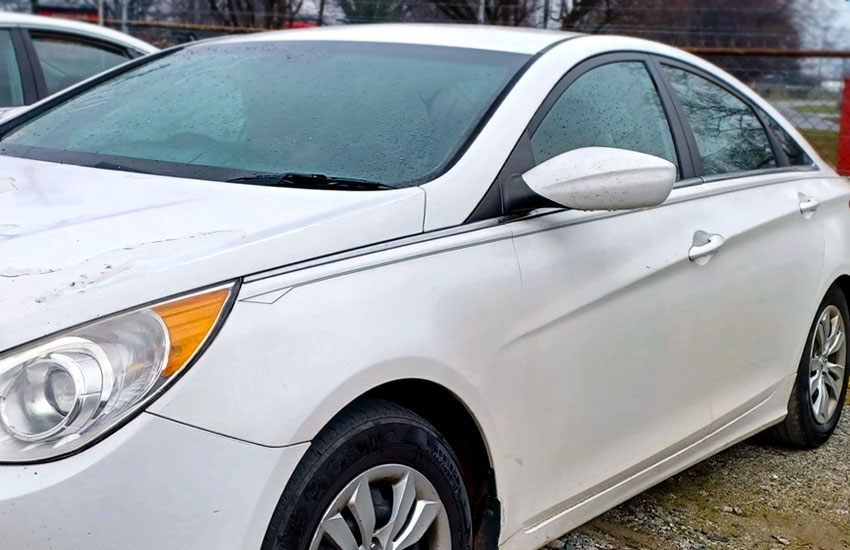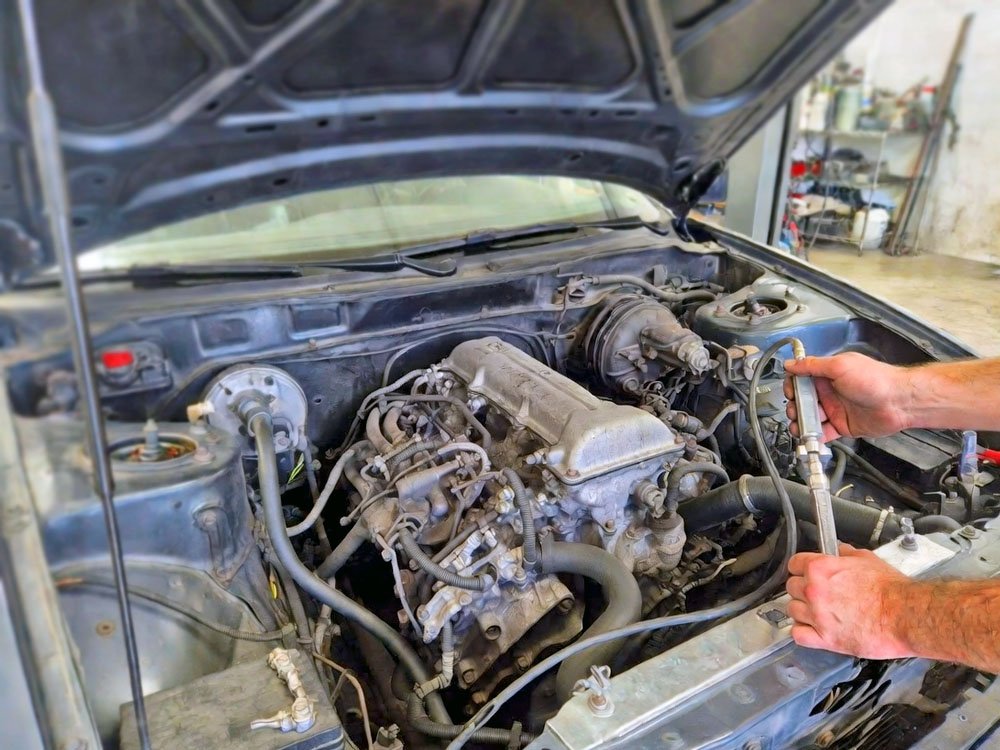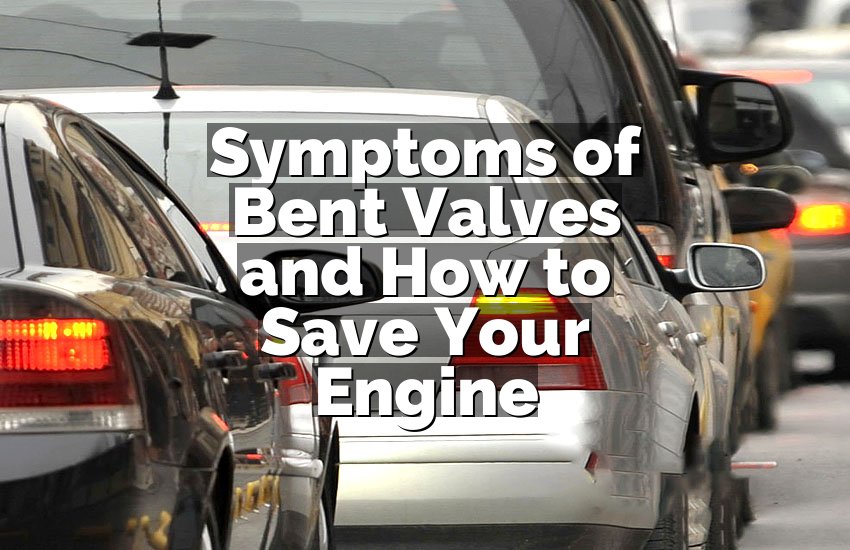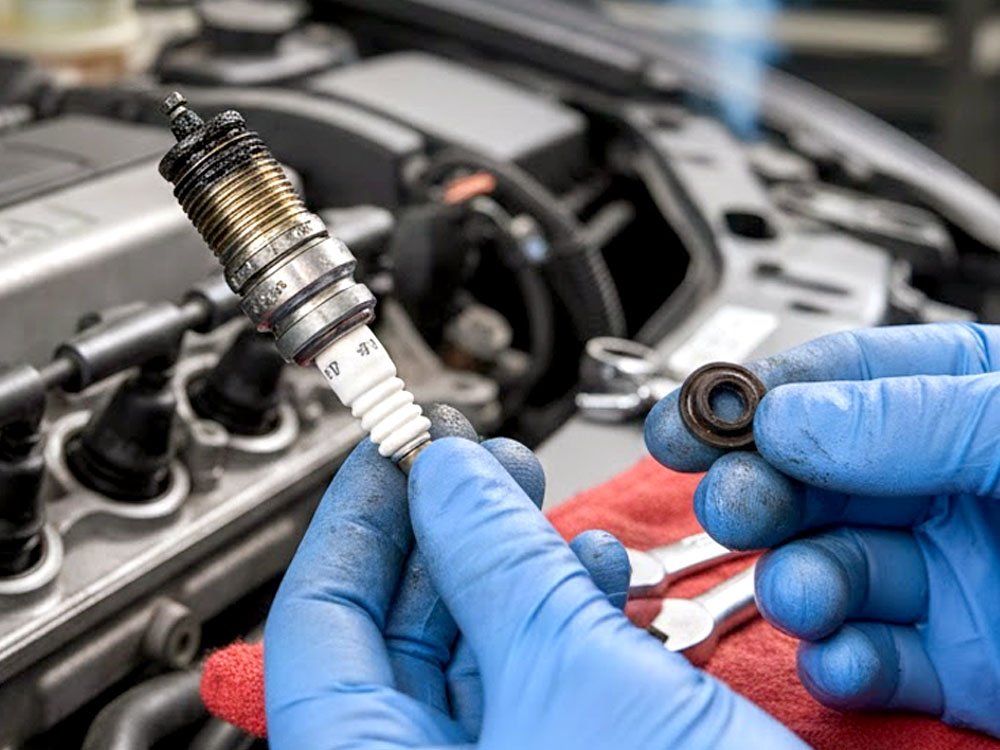You’re driving along, and suddenly your car starts making weird noises and just stops. You might have run out of oil. It’s a scary situation, but don’t panic. Getting your car running again isn’t as tough as it sounds.
First, let’s figure out why running out of oil is a problem. Oil keeps your engine parts moving smoothly. Without it, things can get pretty messy and cause serious damage. If you’ve run out of oil, you need to take action quickly to avoid a costly repair.
In this article, we’ll go through the steps to start your car after running out of oil. You’ll learn how to check the oil level, add oil if needed, and get your car back on the road. Let’s get your ride running smoothly again!
Understanding the Risks of Running Out of Oil
Running out of oil in your car can lead to some serious problems. Oil is like the blood of your engine—it keeps everything moving smoothly and prevents parts from rubbing together.
When you run low or run out of oil, the engine can get very hot because there’s not enough lubrication. This heat can damage the engine’s parts and cause them to wear out faster. In the worst cases, it could even lead to engine failure, which is a big and expensive repair.
Without oil, the engine parts don’t get the protection they need. This means they can start to grind against each other and create metal shavings. These shavings can clog up the engine and cause even more damage.
It’s also important to remember that running out of oil can lead to reduced performance. Your car might start to run roughly or even stop working altogether. So, it’s really important to keep an eye on your oil levels and top them up regularly to avoid these problems.
Immediate Actions to Take When You Run Out of Oil
If you find yourself in a situation where your car has run out of oil, it’s important to act quickly to avoid further damage. First, pull over to a safe location as soon as you can.
It’s best to turn off your engine right away to prevent overheating or severe damage. If you’re on the side of the road, make sure your car is in a safe spot and put on your hazard lights to alert other drivers.
Next, check your oil level if you can. Some cars have an oil dipstick that you can use to see if there’s any oil left. If you have a spare oil container, you can try adding some oil to the engine.
However, if you’re unsure or don’t have oil with you, it’s better to call for roadside assistance or a tow truck. Driving without enough oil can lead to major engine problems, so it’s safer to have your car towed to a repair shop where professionals can check and fix the issue properly.
Lastly, make sure to get your car checked by a mechanic as soon as possible. They’ll be able to assess any potential damage and help you avoid future oil-related problems.
How to Safely Start Your Car After Running Out of Oil
Here’s a step-by-step guide to help you handle the situation:

Assess the Damage
Before trying to start your car after running out of oil, you need to check if there’s any damage. First, look at the oil level. You can do this by using the dipstick, which is a long, thin tool that checks the oil level in your engine.
Pull it out, wipe it clean with a cloth, then put it back in and pull it out again. The oil should be at the right level, which you can see marked on the dipstick. If there’s no oil or it’s very low, you need to add oil before trying to start the engine.
Next, check if there are any oil leaks. Look under your car for any signs of oil on the ground. Oil leaks can be a sign of damage or a problem that needs fixing. If you see oil on the ground, you might need to fix the leak before you start the car.
Finally, listen carefully to the car’s engine. When the engine was running out of oil, it might have made strange noises, like knocking or rattling. These noises can mean there’s damage inside the engine. If you hear these noises, it’s a good idea to get a mechanic to check your car before you start it. This will help avoid further damage to your engine.
Add Oil
After checking for damage, the next step is to add oil to your car. First, you need to get the right type of oil. Look in your car’s owner manual to find out what kind of oil is best for your engine. Using the right oil is important for the engine to run smoothly.
Once you have the right oil, open the hood of your car and find the oil filler cap. This is usually labeled with an oil can symbol. Remove the cap and set it aside. Then, pour the oil slowly into the opening. Be careful not to pour too much oil at once. It’s best to add a little, check the level, and then add more if needed.
After adding oil, wait a few minutes before trying to start your car. This gives the oil time to move around and get into all parts of the engine. It also helps to avoid starting the engine right away, which can cause problems if the oil isn’t spread evenly.
Start the Car
When you’re ready to start the car, turn the key in the ignition to the ‘Start’ position. The car might take a moment to start because it has been without oil. Be ready to listen carefully. If you hear strange noises or the engine sounds rough, this might be a sign of a problem.
Watch the dashboard for any warning lights. There should be a light that shows oil pressure. If this light stays on, it means there’s still a problem with the oil system. If you see this light, turn off the engine right away.
Also, check under the car again while the engine is running. Look for any new oil leaks. If you see oil leaking, you should turn off the engine and fix the leak before driving.
If the Car Doesn’t Start
If your car doesn’t start after adding oil, there might be another issue. First, check if the battery is working. Sometimes, when cars run out of oil, it can also affect the battery. Make sure the battery is charged and in good condition.
If the battery is fine and the car still won’t start, it’s best to get a mechanic to look at it. There could be more serious damage to the engine or other parts of the car that you might not be able to fix on your own. A mechanic can help find and fix the problem.
Prevent Future Issues
To prevent running out of oil again, make sure to change your oil regularly. Follow the schedule in your car’s owner manual for oil changes. Regular oil changes keep your engine healthy and running well.
Also, check your oil level often. This is easy to do with the dipstick. Checking the oil level regularly can help you spot problems before they get serious. Keeping an eye on your oil can save you from costly repairs and help your car run smoothly.
I hope this guide helps you start your car safely after running out of oil. Remember to check for damage, add the right amount of oil, and listen carefully when starting the engine. If you have any trouble, don’t hesitate to get help from a mechanic. Taking good care of your oil can keep your car running smoothly.
Are These Questions in Your Mind?
Is it dangerous to drive after running out of oil?
Yes, it can be very dangerous. Driving without enough oil can cause severe engine damage and lead to expensive repairs. It’s best to avoid driving until you’ve resolved the issue.
Can running out of oil cause permanent engine damage?
Yes, running out of oil can cause long-term damage to your engine. Lack of lubrication can lead to overheating and wear on engine parts.
Do I need to replace the oil filter after running out of oil?
It’s a good idea to check the oil filter. If it’s old or clogged, replacing it can help ensure your engine runs smoothly after adding new oil.
Can I use any type of oil to refill my engine?
No, you should use the type and grade of oil recommended in your car’s owner manual. Using the wrong oil can affect engine performance.
Is it okay to start the car right after adding oil?
No, it’s better to wait a few minutes before starting the engine. This helps the oil circulate properly through the engine parts.
Do I need to add oil immediately if I notice a low oil warning light?
Yes, you should add oil as soon as possible if you see the low oil warning light. Continuing to drive with low oil can damage your engine.
Can running out of oil affect other car systems?
Yes, running out of oil can affect other systems, such as the engine cooling system and the transmission, due to reduced lubrication and overheating.
Is it normal to see smoke when starting the car after running out of oil?
Some smoke might appear initially, but if it continues, it could indicate a problem. Consult a mechanic if the smoke persists.
Do I need to have my car towed if it ran out of oil?
If your car won’t start or if there’s significant damage, it’s best to have it towed to a repair shop to avoid further damage.
Can I fix oil leaks myself?
You can attempt to fix minor oil leaks yourself, but for major leaks or complex issues, it’s best to seek professional help to ensure the problem is properly resolved.


